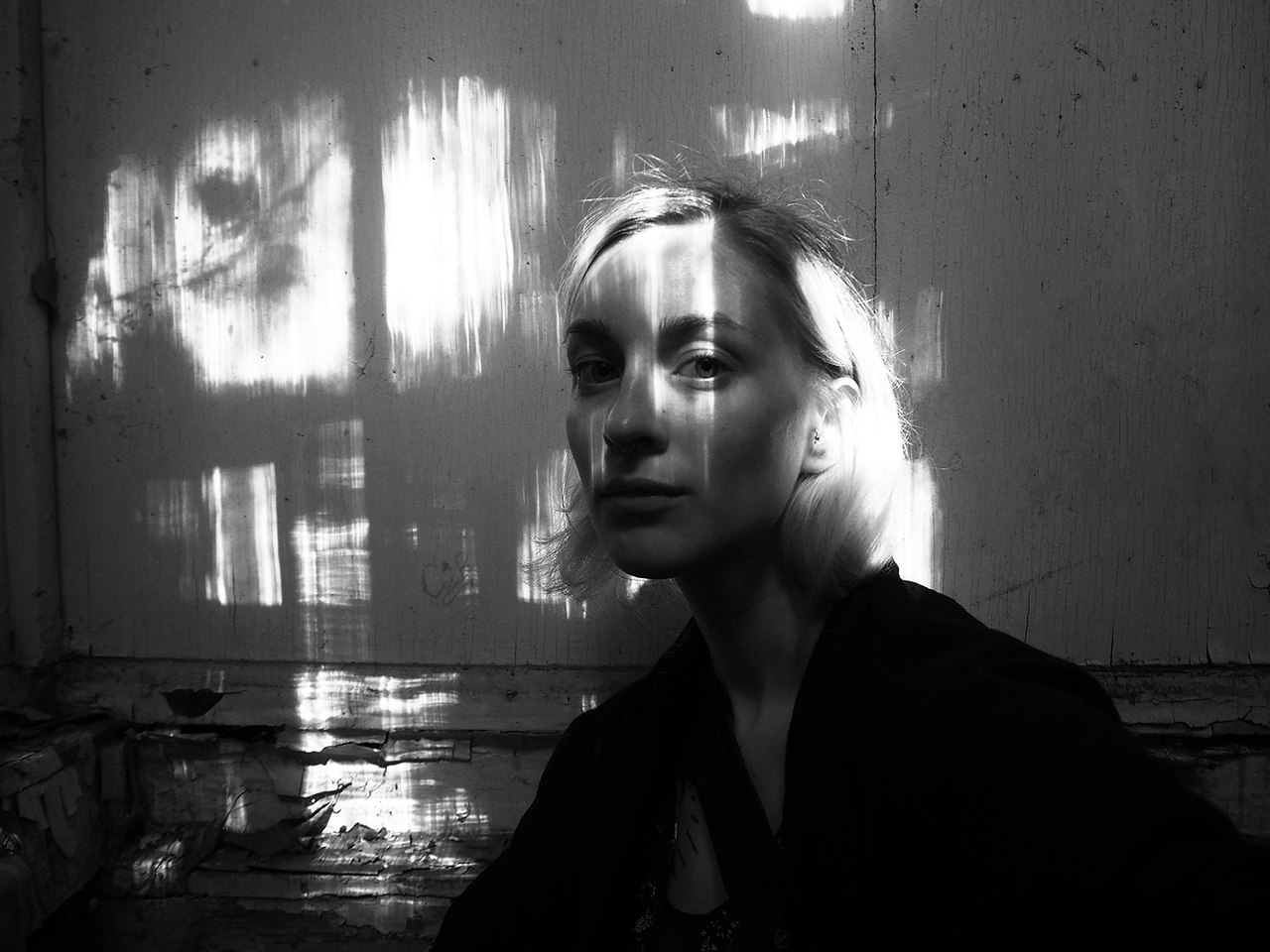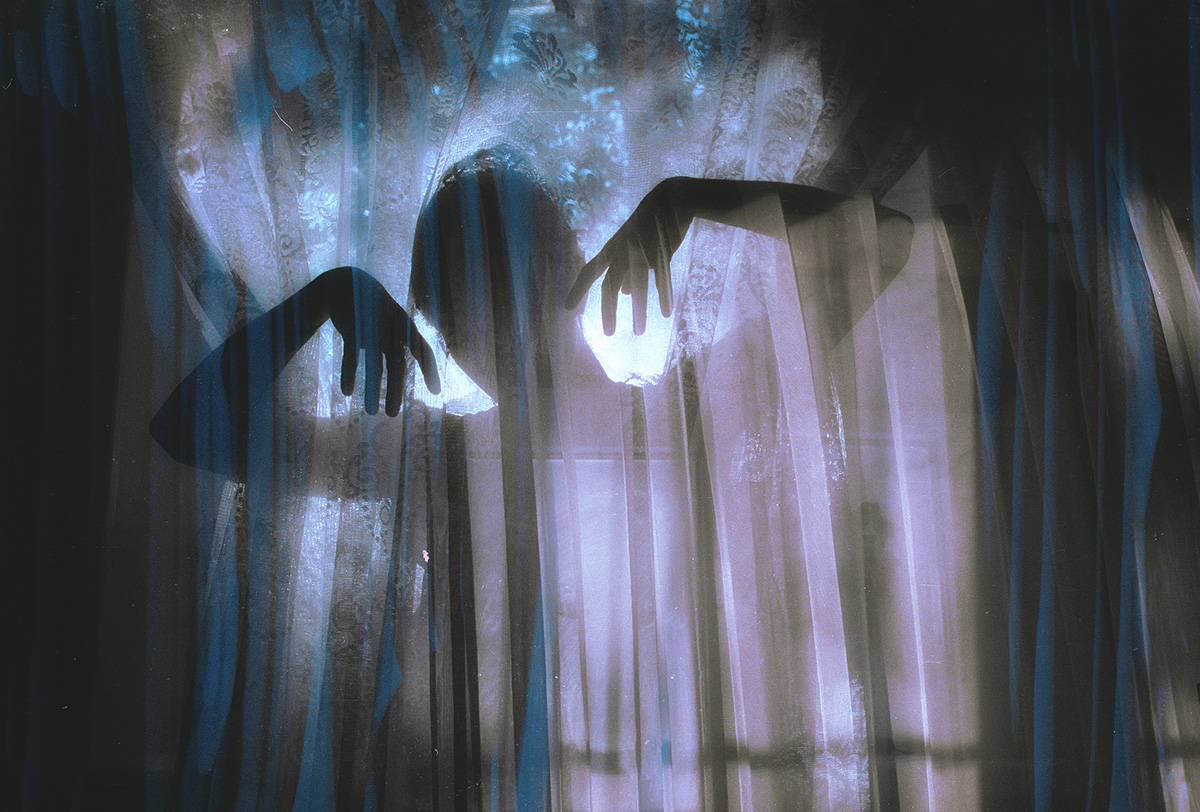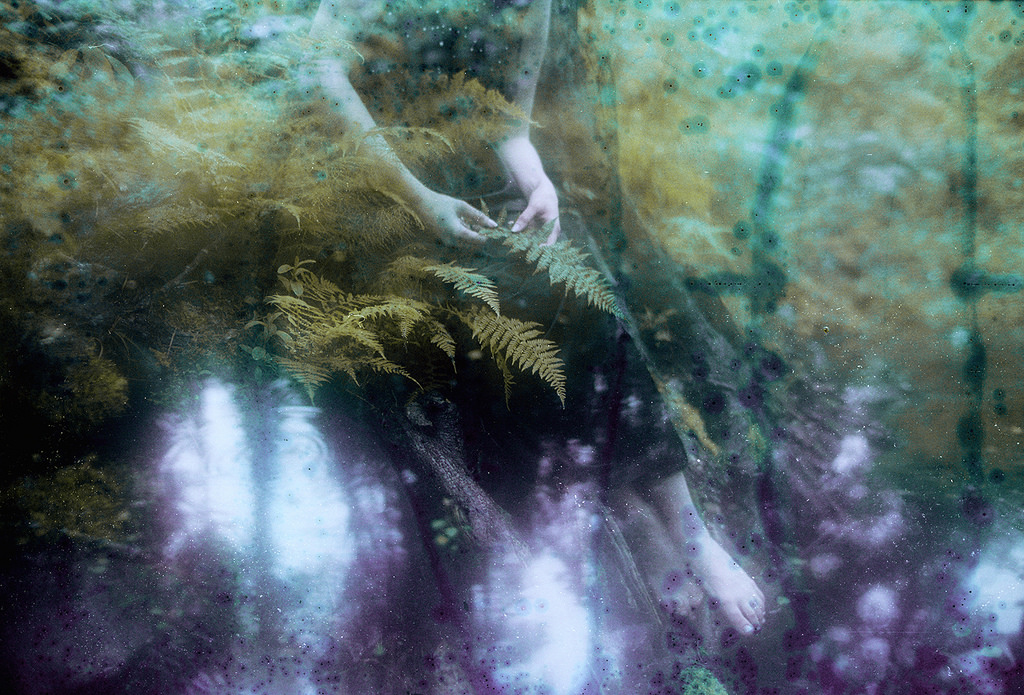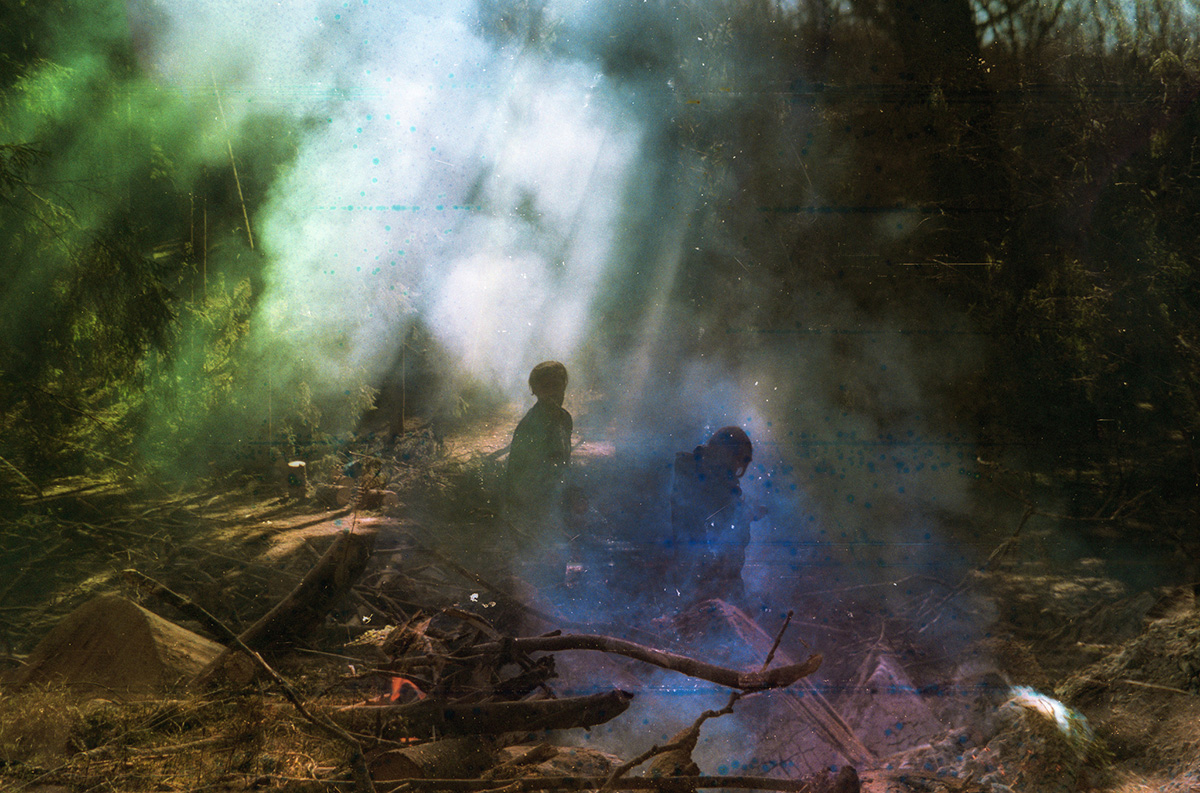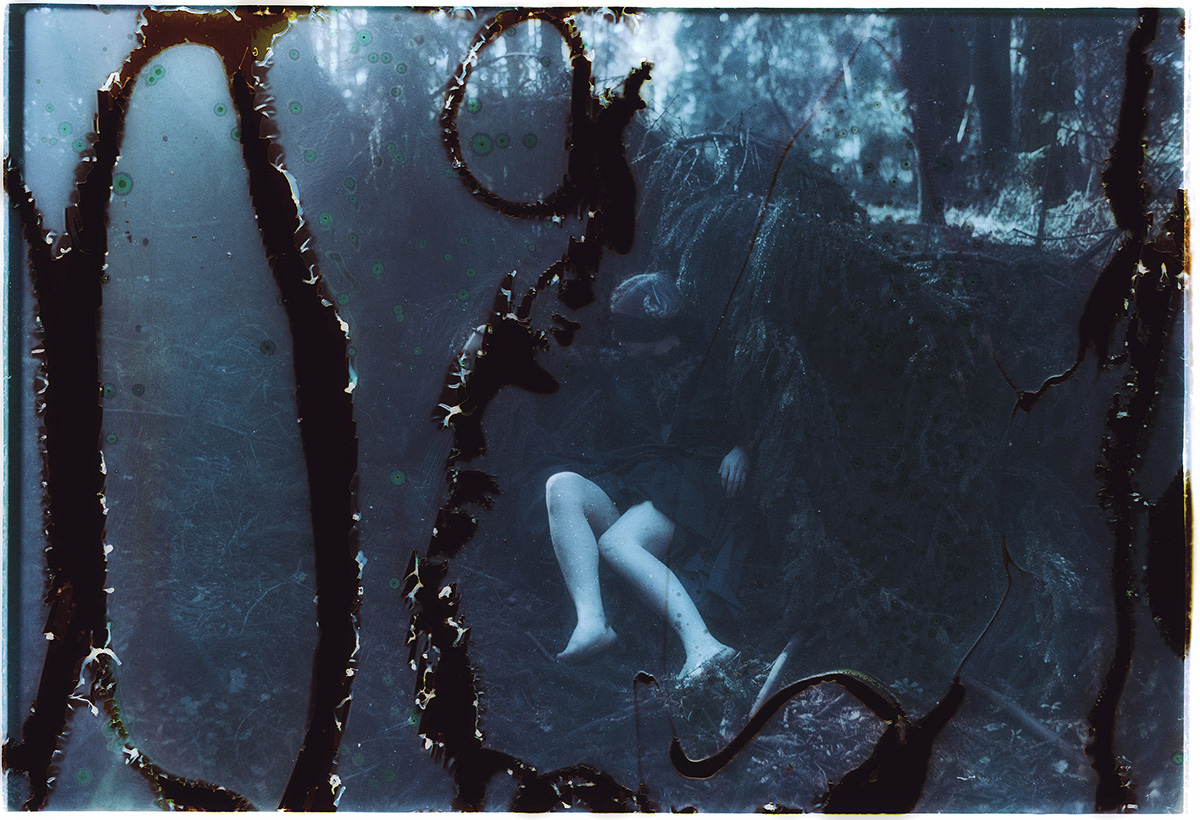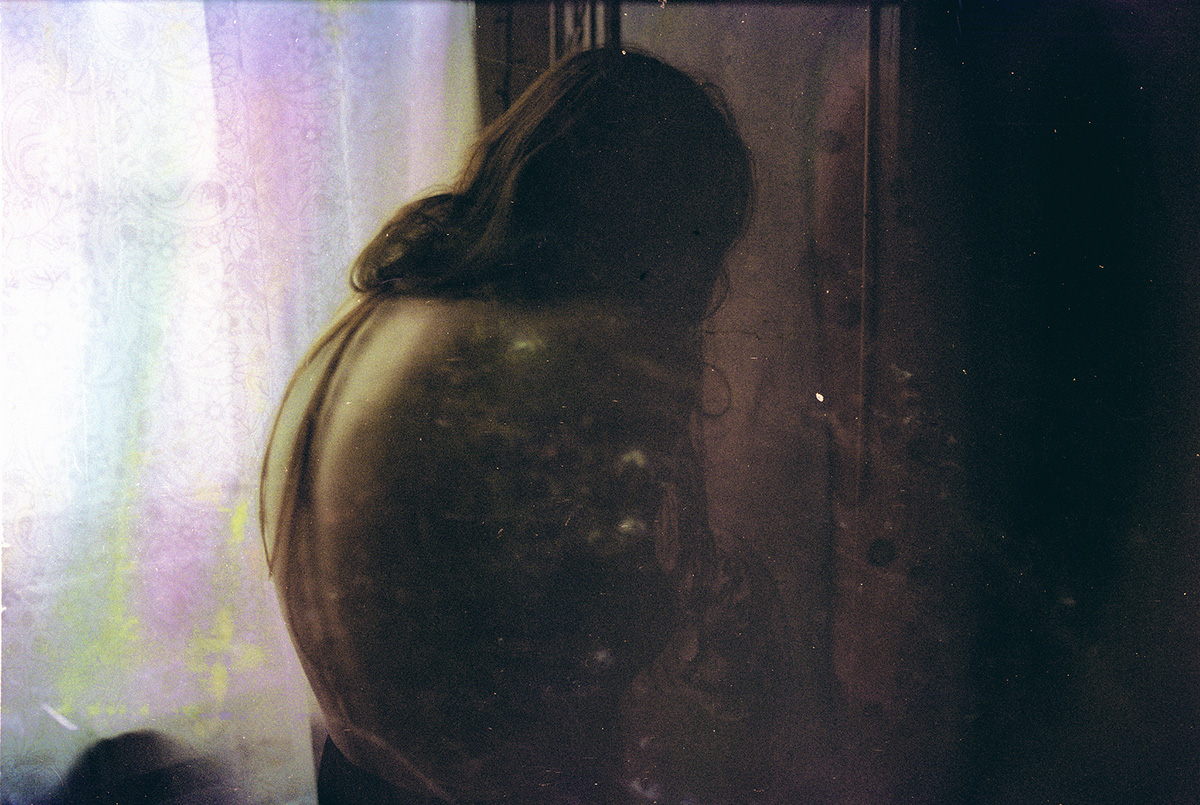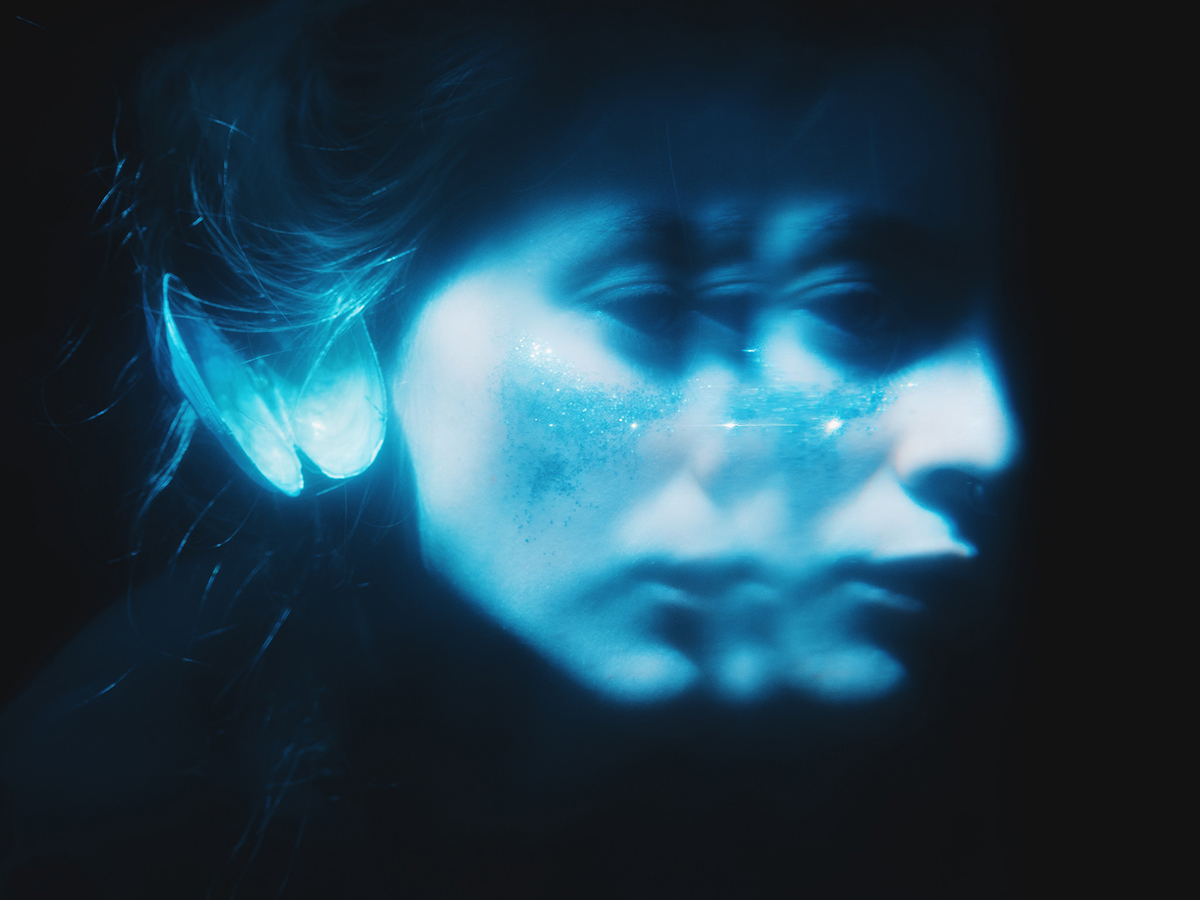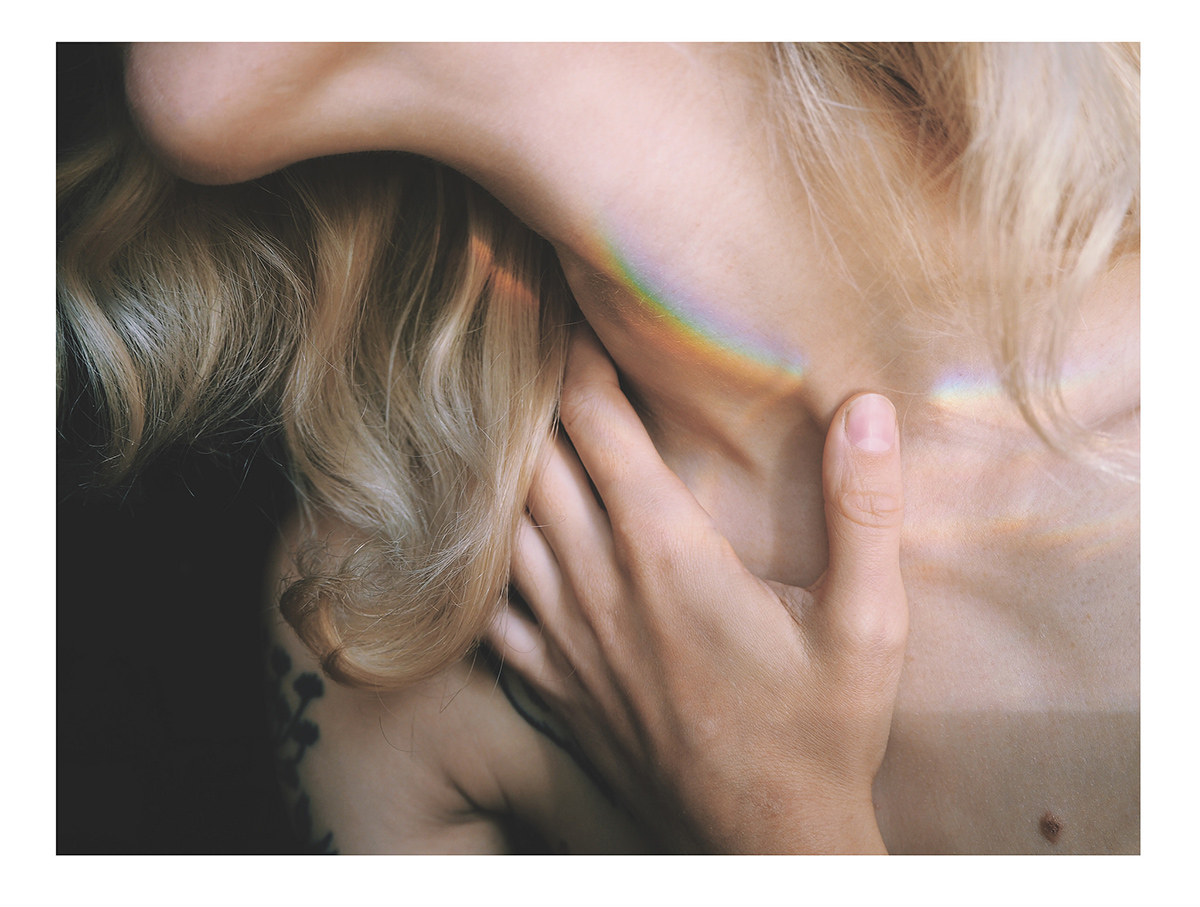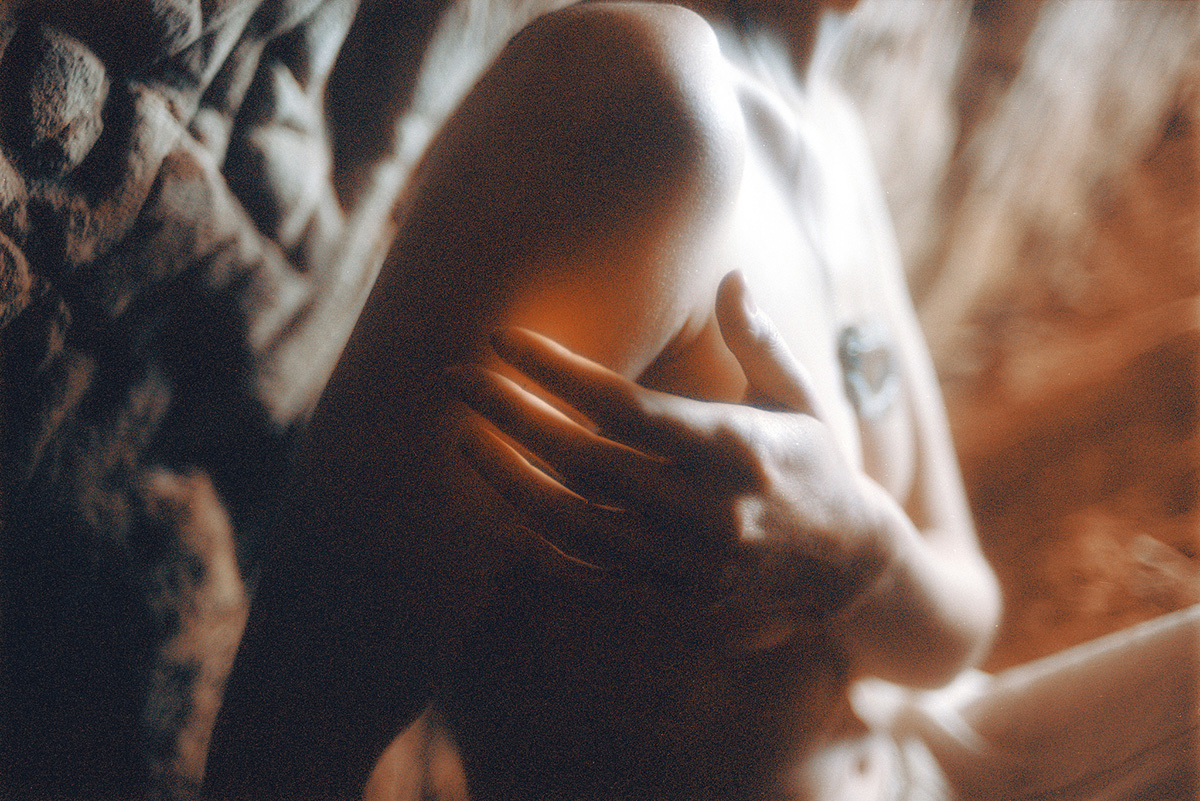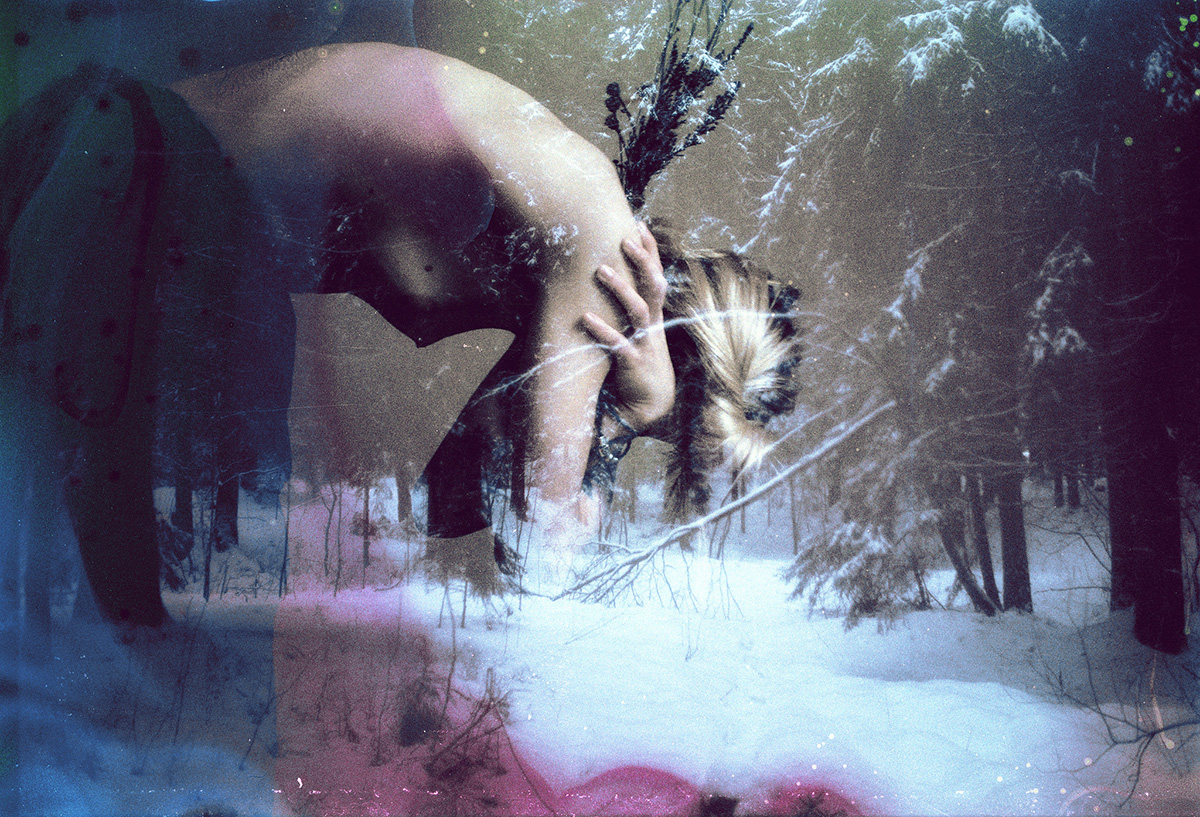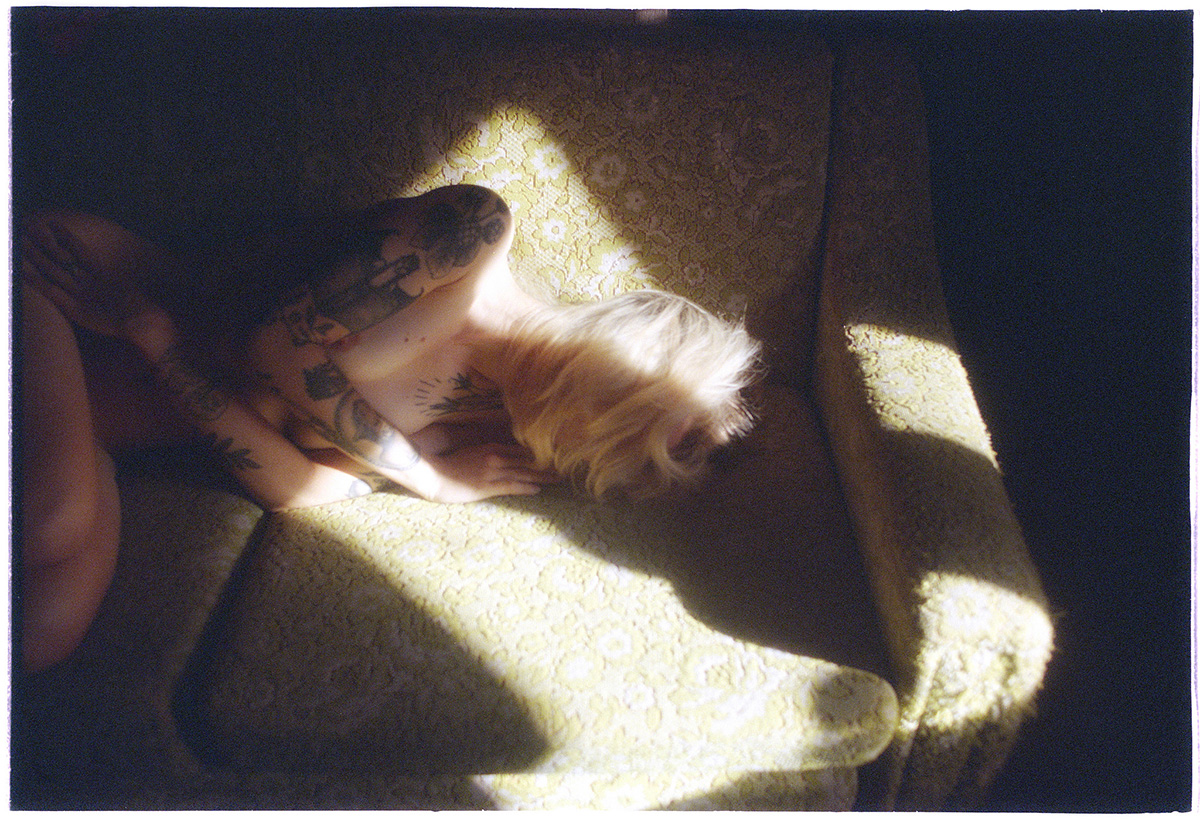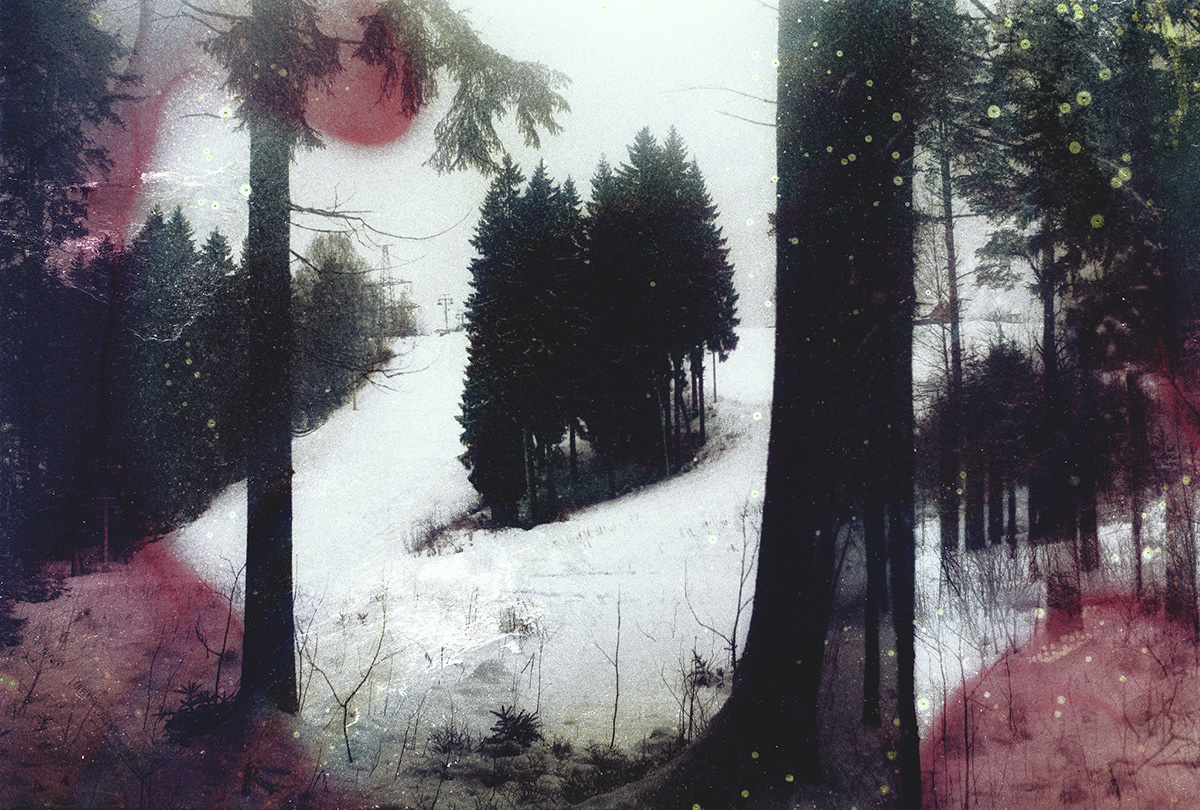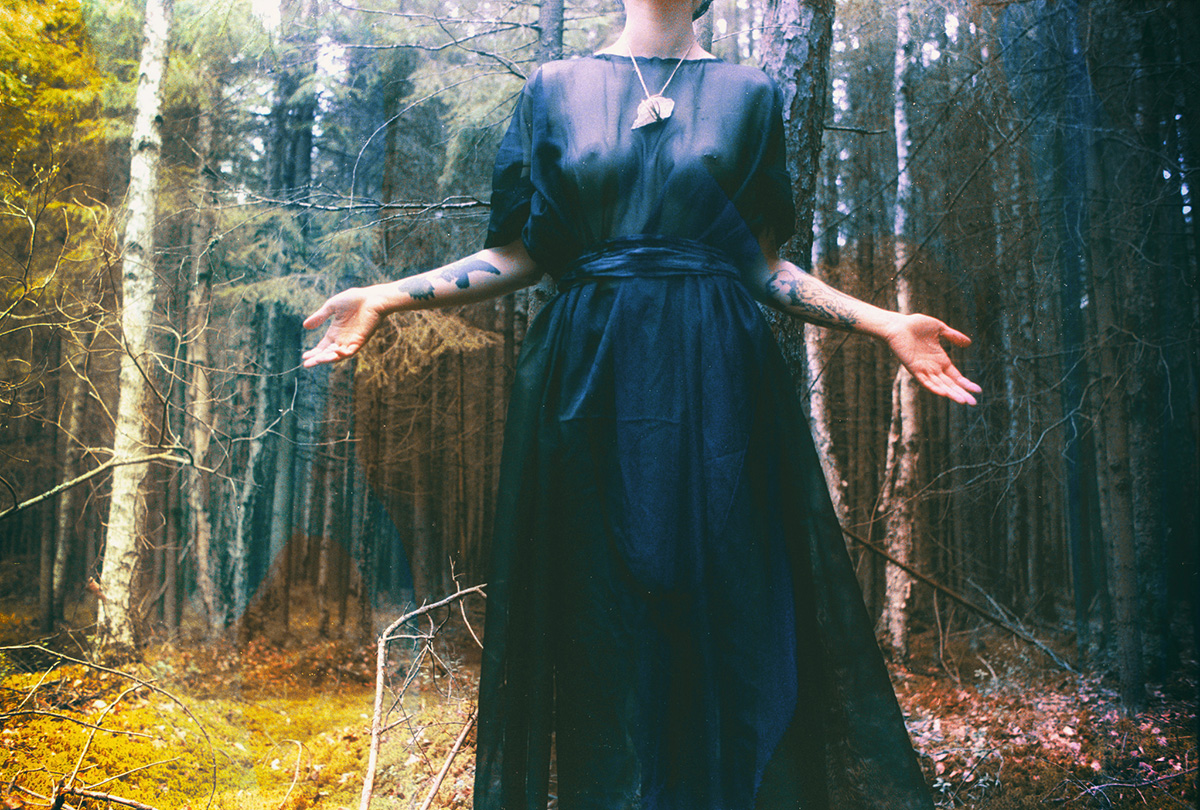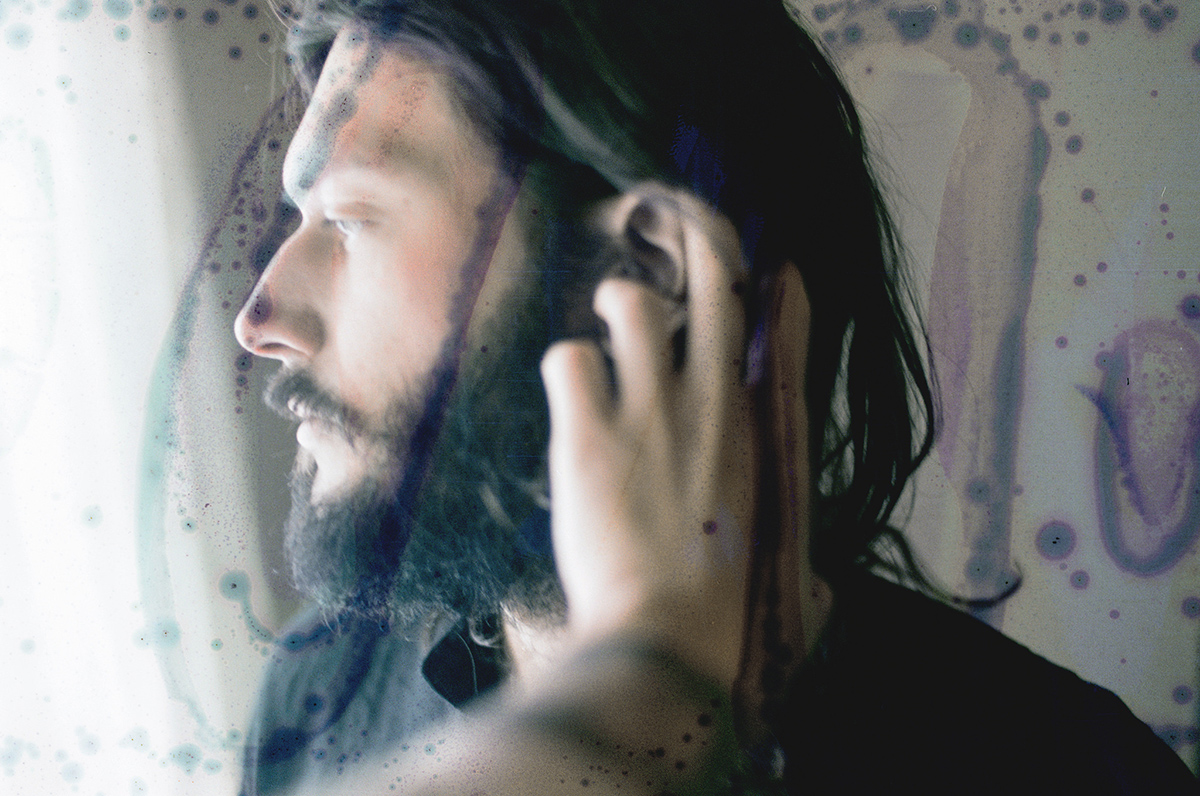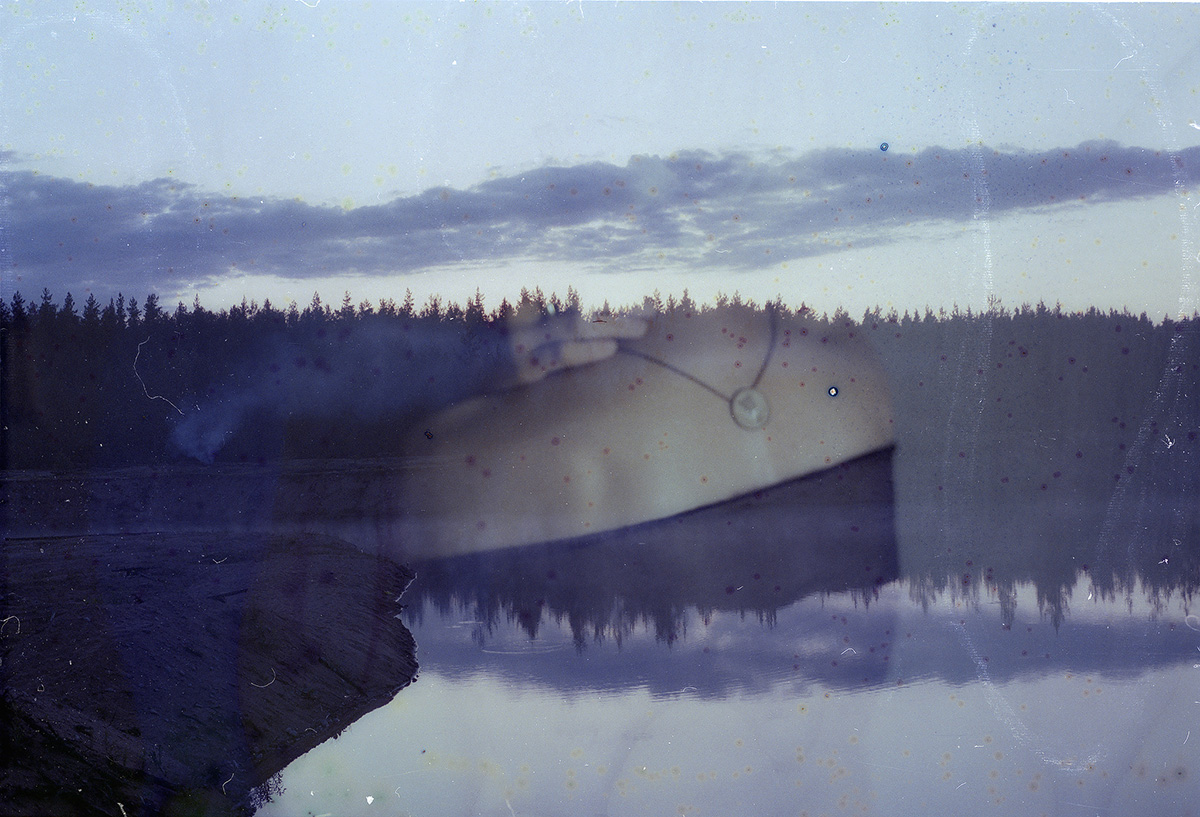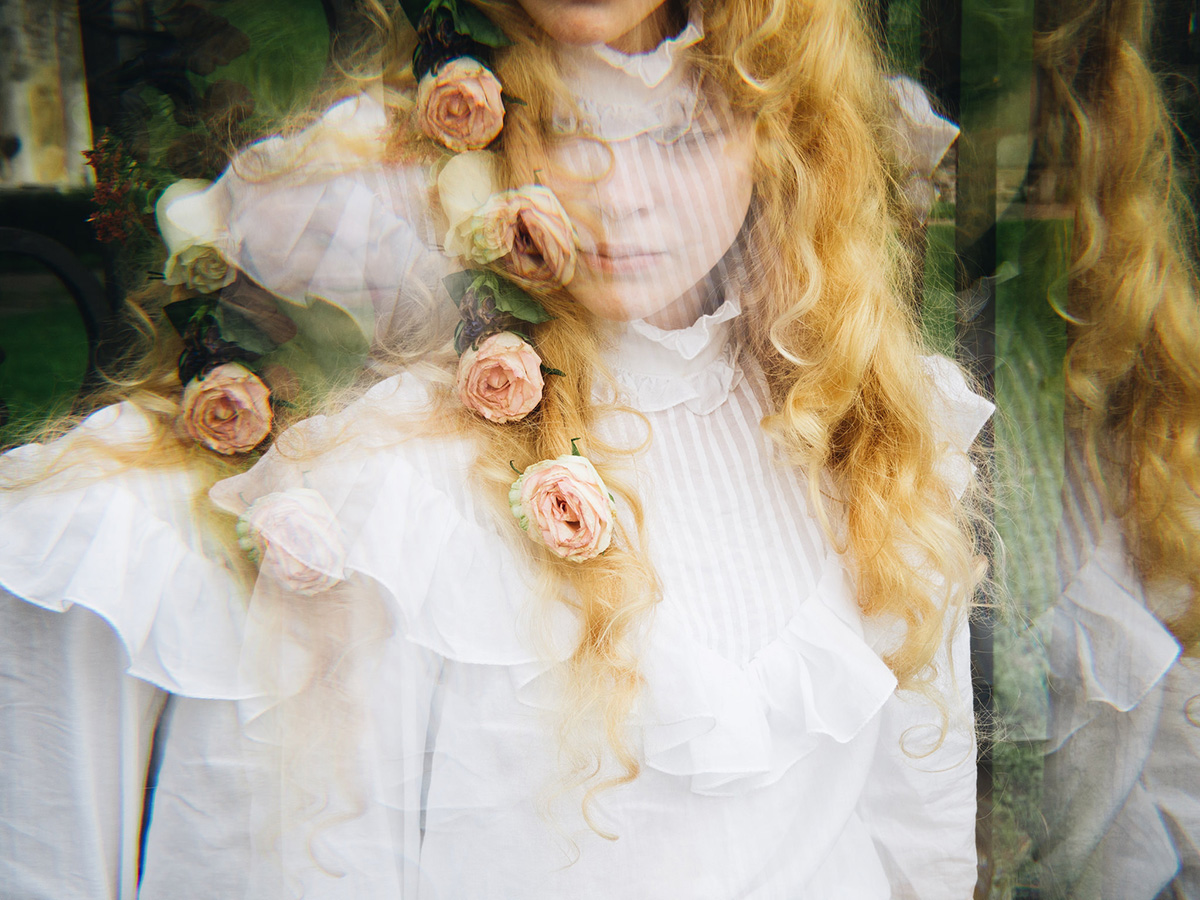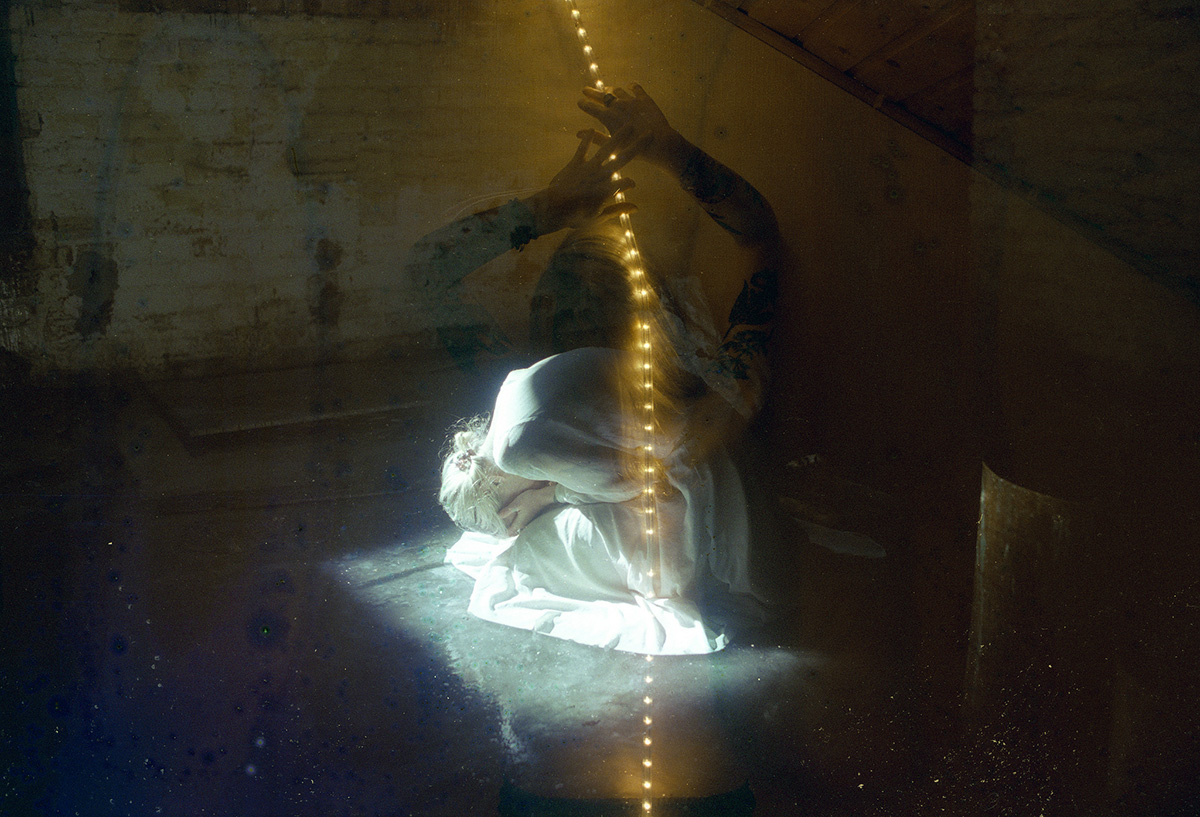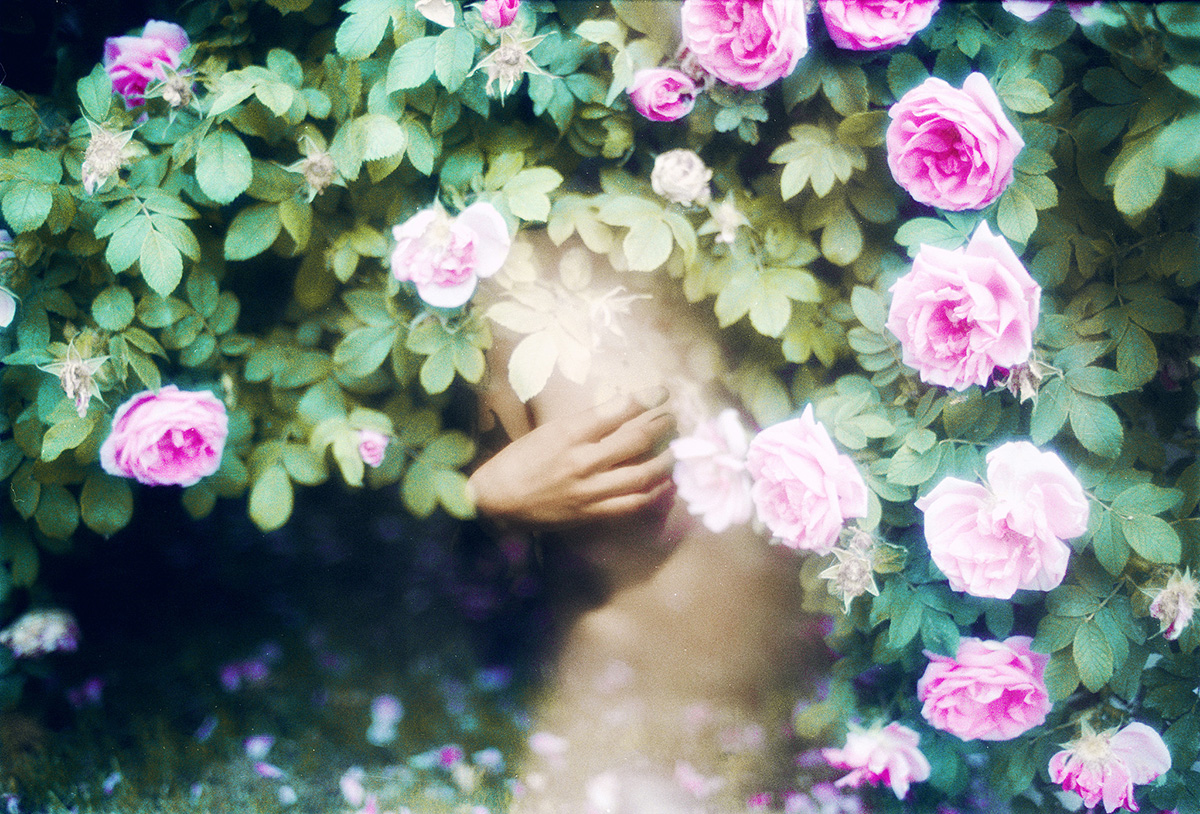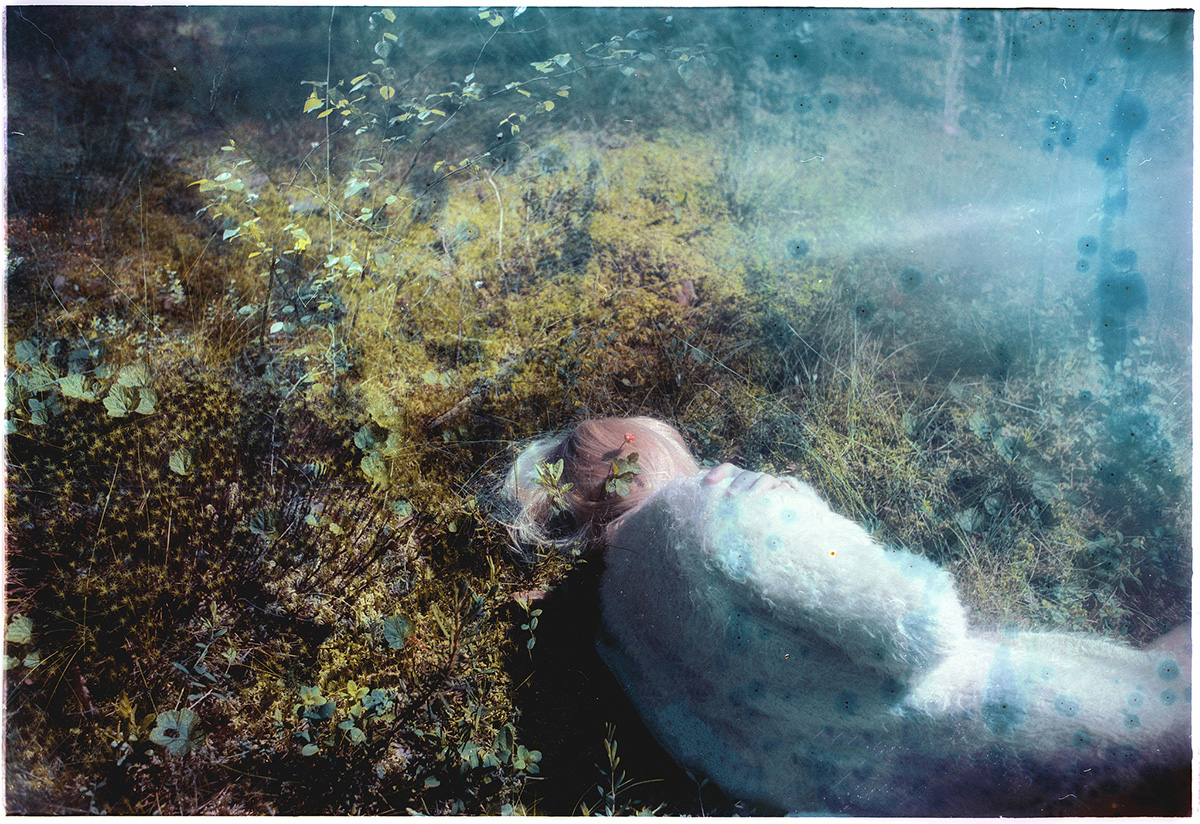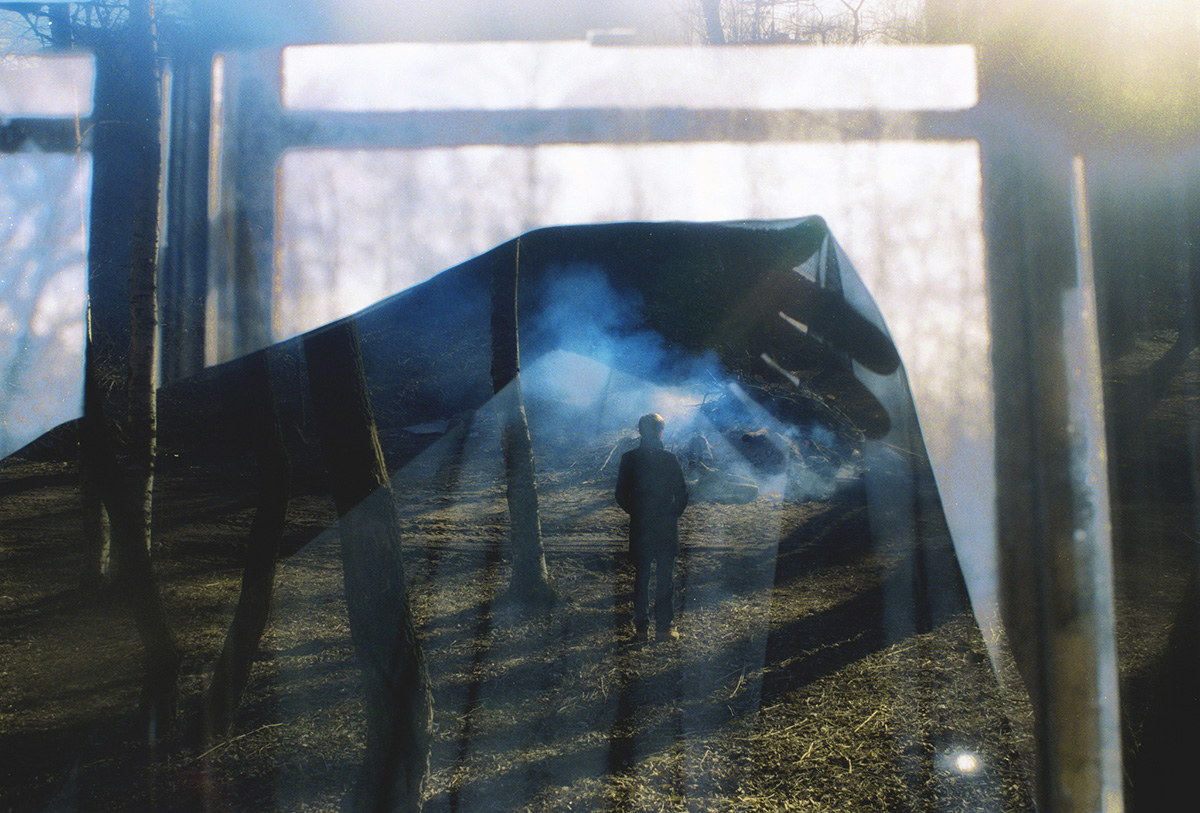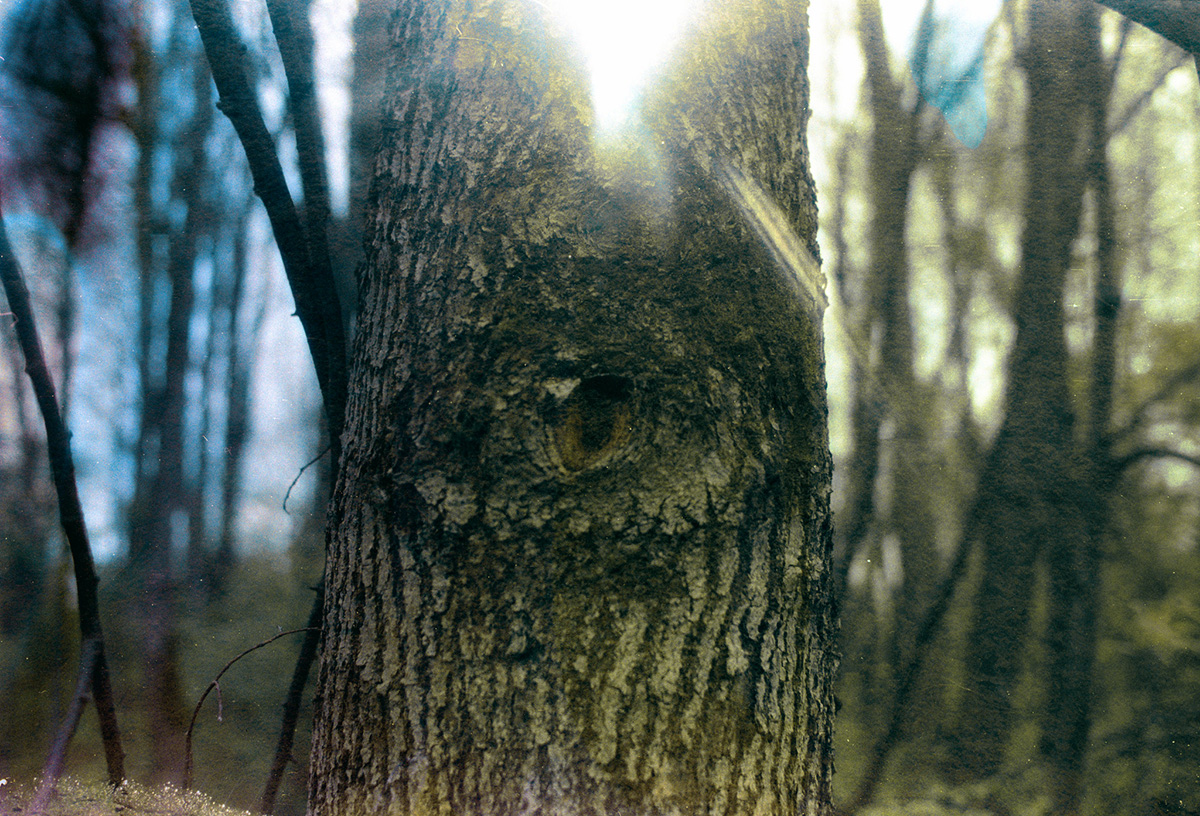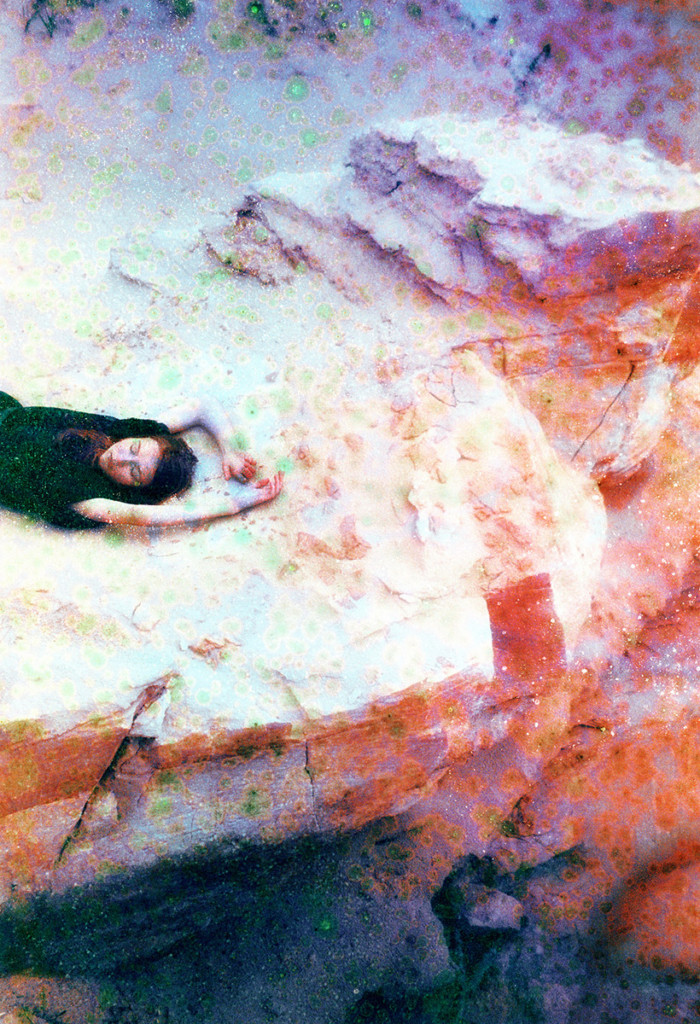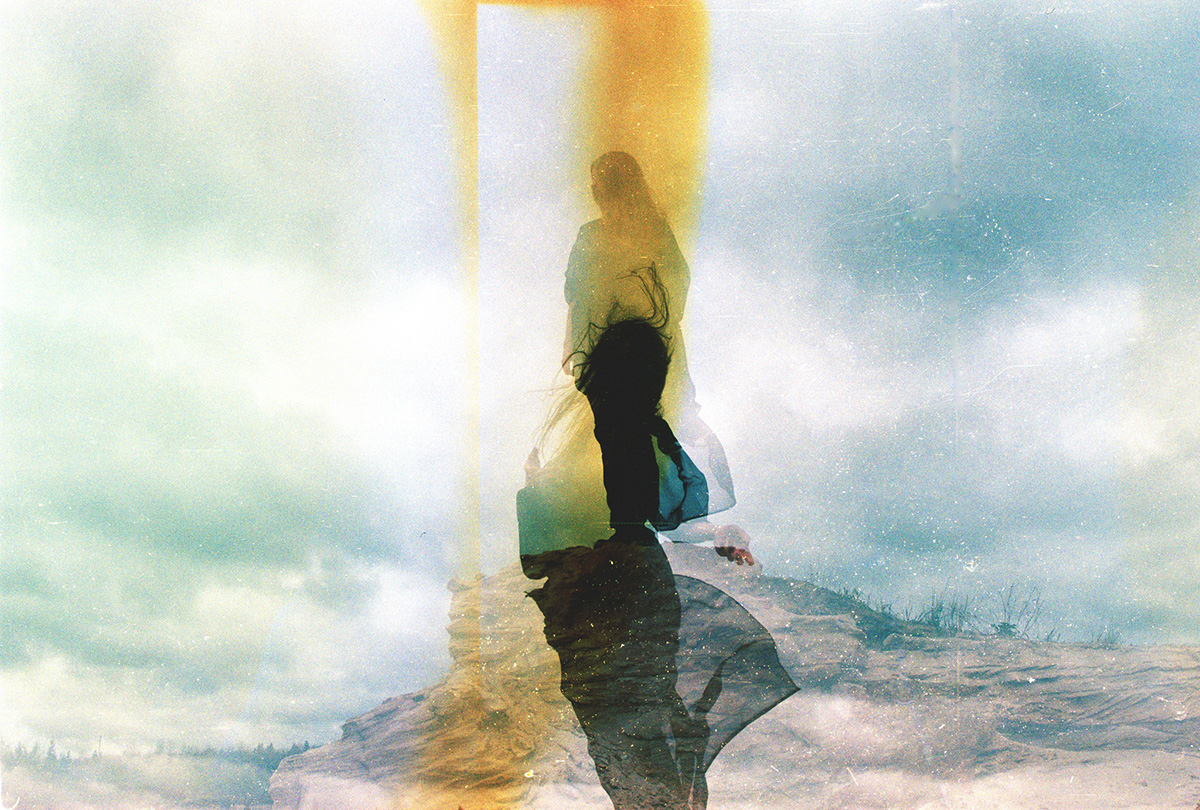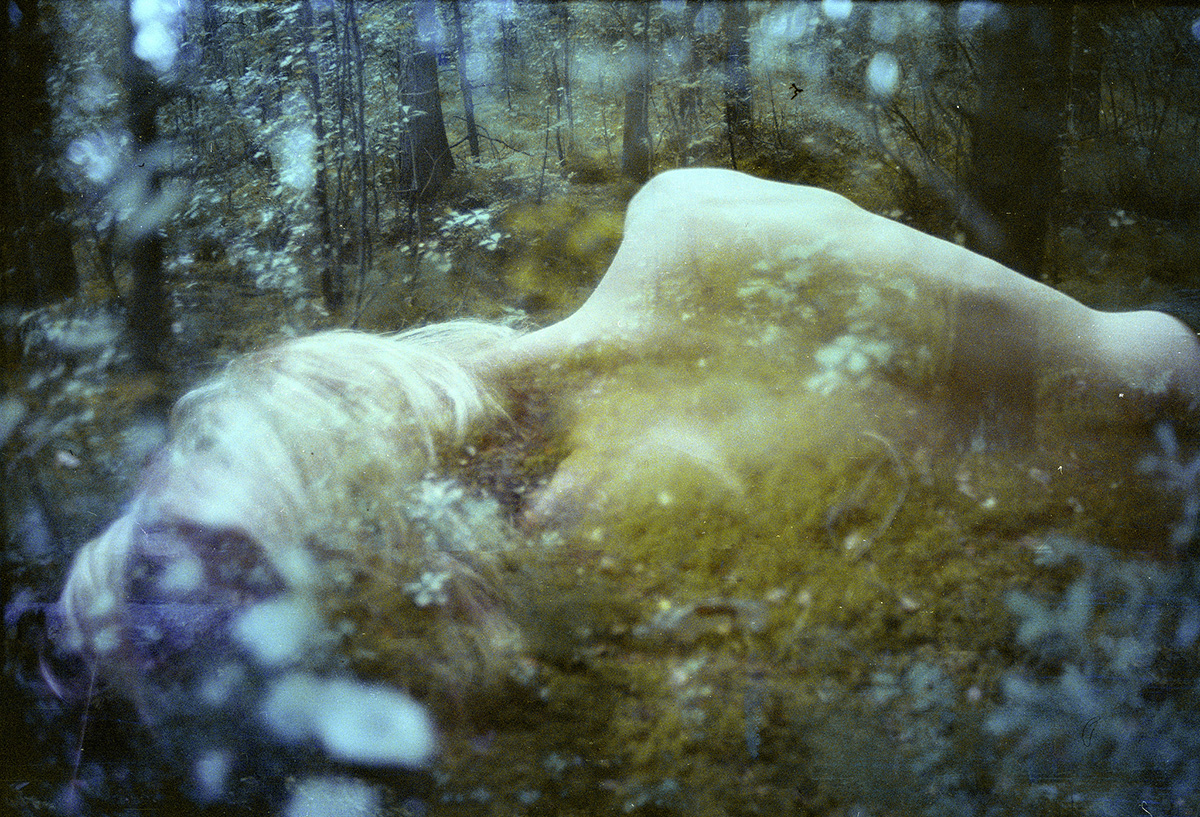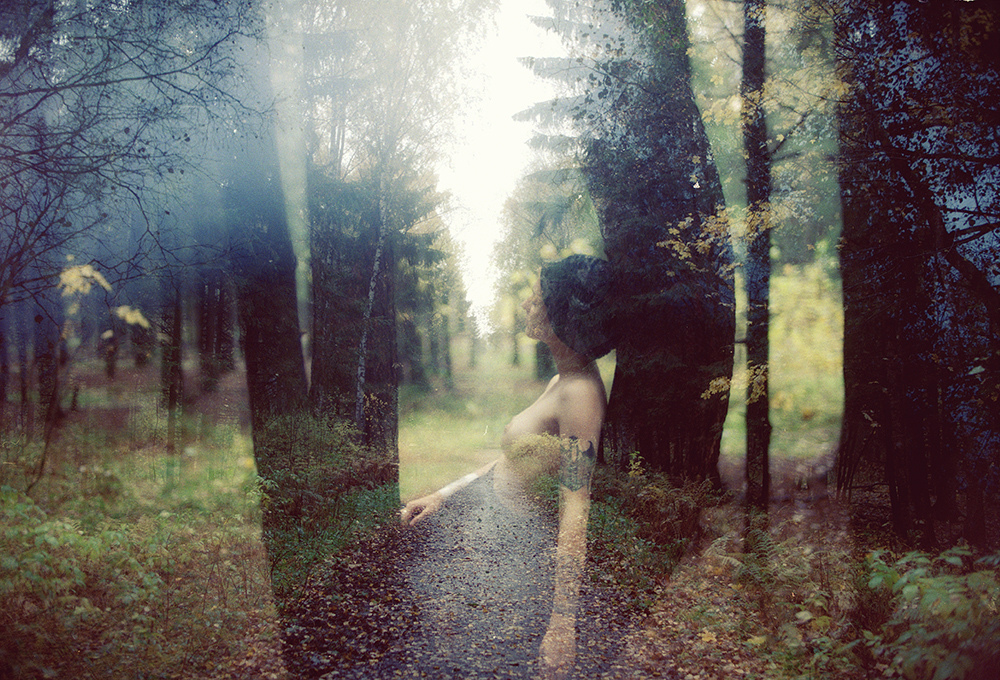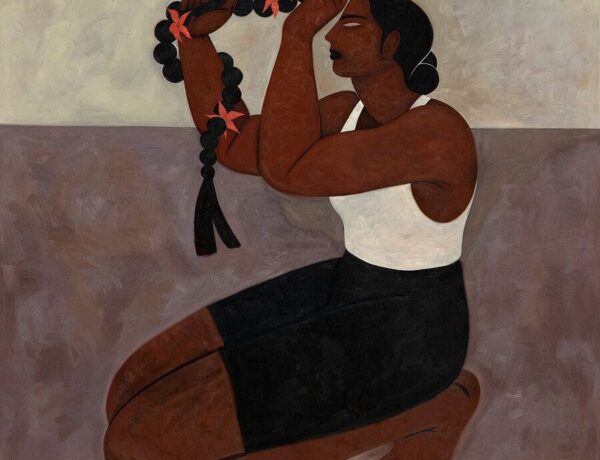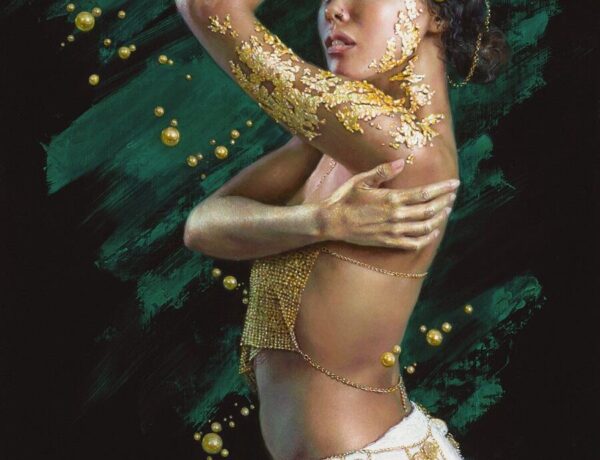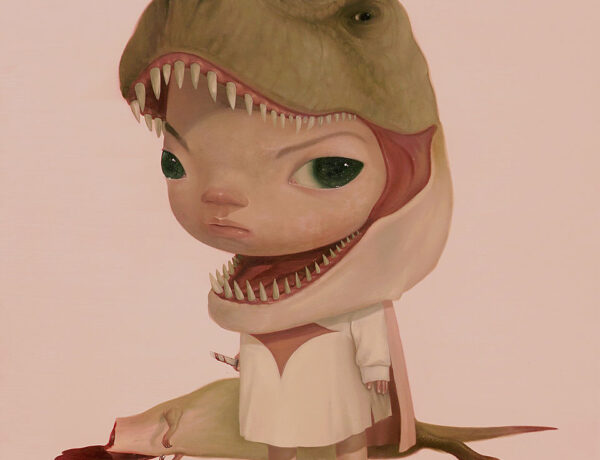As someone who shares a passion for capturing the perfect moment, Polina Washington’s dream-like worlds speak to me in a special, intimate way. Not only does this gifted visual explorer have an eye for the wonderfully weird, but she manages to capture one as though through a veil. “Come hither, look deeper, search for life and meaning in the endless layers of colour and shapes,” she seems to beckon.
Living in St Petersburg set the scene for her imagery, while each of her self-portraits unfold to reveal an authentic person with inner magnificence that shines through – dashing the ridiculous standards of perfection and beauty the world has created for women today. She, too, has struggled with these issues and has emerged a bright star in the firmament of fine art. Polina Washington shares this journey through photography and self-love in an exclusive interview with beautiful.bizarre.
.
Website | Print Store | Facebook | Instagram
Who is Polina Washington? How did you fall into photography, and what is it you love most about this unique medium you use?
Usually when you say that you’re a photographer, people start thinking that you’re a magician with a camera and you can capture everything – whatever they need. The same was with me too often. I had requests to shoot shoes for a webstore with no light or any equipment, some portraits or portfolios in studios, dogs and bags, weddings or any other celebrations, bars or parties, etc. The most interesting thing was that I used to work with analogue photography – I had no digital camera for a long period, but was asked to shoot any kind of weird stuff with people never paying attention to the fact that I work in a completely different scene. The ‘photographer’ title was a damnation. It’s like you can only knit socks but everybody thinks you’re a costume designer and ask you to sew a dress. It has always been an annoying thing, I never wanted or tried to be a professional photographer who can shoot everything, I studied art photography and I didn’t want to be involved in all this documentary photography.
So now I try to introduce myself as an artist or visual explorer – it should definitely protect me from future requests to shoot children or flowers in a garden. It’s sad, but sometimes it’s really difficult to explain that you work in non-commercial photography. Some people even asked me to shoot their portraits but had never seen my pictures, didn’t know that I shoot with film and had no idea about my style and vision.
I started photography very unexpectedly – nobody tried to involve me, I had a family full of musicians but once I saw some art photographs in the internet and was really impressed! I never knew an image could affect you so much. This power charmed me so deep that I wanted to try it. And it’s been ten years now since that day. I really love that photography is about feelings and it can tell you as much as a poem but with no words. It’s like playing a game with reality – you try to catch ‘the moment’ of non-ordinary condition, the moment that even doesn’t exist without your perception and observation. And it’s all about you – the author.
Your work is often tranquil, elusive and fairytale-esque. Tell me about the process of creating an image, what draws you to these kinds of dreamscapes?
I always wanted to create something special that actually was connected with my personality. I wanted art to express my feelings, my vision and emotions through the image. But it wasn’t so easy. Using regular plots, techniques and instruments couldn’t help me to go deeper into my nature. I had to find something new to me, where I could truly feel myself unexperienced as a child, because my knowledge in photography with all these rules I’d learned in a University made me numb.
I started working with colour film and the multi-exposure method. I’d been learning to accept colours and to work with them for a long time, and double exposure also was a huge field for experiments. It was something like starting photography from the beginning. And all this helped me to break my visual borders and let something new to appear on my shots. I’ve chosen woods and nature landscapes as an atmosphere because I could find a ‘colour harmony’ there. My goal was to learn and I was trying to find interesting colour combinations and plots – that’s why nature was a good area to start. It happened very intuitively.
On another point, I didn’t want to capture reality as I saw it. I wanted to transform it. The documentary side of photography wasn’t interesting for me from that moment. That’s how those dreamscapes were born – I also didn’t plan to make it in this way but the mix of my interests, my surroundings and mood created those dark visions I’ve been shooting for a several years.
I think it was an important step in my life as an artist, to get away from the ‘standards’ I was encircled by my masters or other photographers. It gave me the possibility to start exploring myself through the world around, people and places. The process was to see common objects or people from the other angle and try to transfer this feeling on film.
On your website there’s quite a bit of info about soaking, how to do it and which methods are best, how they differ, etc. What is your favourite method of soaking and why?
You are never quite sure about the result with soaking. Earlier I tried to take down recipes to create some kind of personal ‘almanac’ with a description of results and effects – it could be a very useful thing but I always forgot to write down something or never could remember which film was soaked by one or another method. So the result was a mess and I decided not to focus so much on recipes but just listen to my intuition.
And now it depends on my mood – do I want to soak this film or not? What ingredients do I want to use and what time of soaking to choose? It’s all spontaneous. I’m not a big fan of crazy soaking effects – I love when my colour palette begins to ‘change’ because of the emulation’s erosion – some more colour stains but not a completely destroyed image. I want it to be ‘gentle’, if I can say so. That’s why I don’t have any favourite methods. It takes a lot of time to soak film first, then dry it, shoot and develop, so I easily forget what tips I’ve used for a soaking bath.
I’ve tried sea salt, beer, wine, washing powder, lemon juice, vinegar, and mixing all of them in a different proportions but I like to boil a film roll in hot water just for a while (a few seconds). It doesn’t damage your film so much and gives your film a very light result. Experimenting with tea mushroom (we call it Kambucha in Russia) was also nice – no cruel destruction but interesting colour palettes. By the way, I mostly like the result of my first soaking baths. I was afraid to affect the film too much so used tiny proportions for a short time reaction.
You say that self-portraits are an important part of your life and art. Tell me about this, how do these enrich your life, both personally and as an artist, and what is it that you draw from these images?
Self-portraits always were a kind of personal diary, but visual. I started photography in my room – I had no sisters or brothers so experimented shooting self-portraits. It was easy and comfortable to work with yourself – I didn’t have to explain something and didn’t have to hurry up. I had as much time and attempts as I needed.
Since that, self-portrait practice became an important part of my life. I was sure I wasn’t born pretty and had lots of difficulties with accepting my appearance or the way I looked, but those regular shootings helped me to change my mind. It gave me a confidence in relating to people and in everything I did.
As I’d been exploring my personality through the self-portraits, it also did good in developing my vision. Understanding my true nature, I was able to use this knowledge in regular shootings. So everything was connected. But I try to be honest, I never force the viewer to see something ‘special’ in my self-portraits – it’s always and only about me, my emotions, and my personality. No secret sense. It’s very simple and very true.
You have a page dedicated to self-portraiture on your site, which is beautiful. So candid and honest – and something I’m sure many women in this century particularly can relate to. How have you learned to love yourself and the way you look despite the world’s skewed ideas of what beauty is?
It was a really long and hard way – to accept your beauty. I’m happy nowadays that women talk more about their right to look the way they want – the body positive movement for example. It should teach society that there’s no ‘Universal Barbie Standard’ for everyone. I don’t want to feel bad because of some stupid standards I don’t meet. It has an effect on everything around me – my work, my inspiration, my mood and relationships with people. But if society still criticizes you because of your measurements, it’s a sick world, and people really do not care about your achievements or intellect.
All my childhood and school years I was surrounded by girls who wanted to look older. Being a black swan, I felt myself ugly. Self-portraits convinced me of the reverse. Step by step with every new image I could see my very unique lineaments. As I changed my perception of myself, people started looking at me from a different viewpoint. If I was sure about my own beauty, everybody else felt it, too.
What would you say to young women who need encouragement to find their inner beauty?
I don’t know any secrets or any words to encourage somebody to accept their beauty and nature because I’m not a 100 percent winner in this. I see how society and people around want me to look and it still influences me. I meet this demon too often, especially when you visit some stores, choose clothes to wear, etc. And it’s scary because I don’t have any huge ‘problems’ with my height, weight or whatever – but still I catch myself thinking about how far my nature is from these standards.
What standards? Who gave it to me? Why should I follow it? Everything around you starts at your relationship with yourself. When you do not accept your nature – who will? The world is a reflection of your emotions and feelings. When you deny yourself because of your looks, everything starts acting wrong.
But I would definitely recommend everyone who has problems in finding their beauty to try self-portraits. It’s a great practice where you learn to notice and focus on details you really adore in your appearance. With time you’ll see that there’s so much unique and beautiful aspects you have. And if you’ll change your mind, everybody else will, too.
Let’s go back to your process – what’s a typical day of work for Polina; where and how do you find inspiration for your imagery and ideas; how does doing a self-portrait, for instance, differ from your other work?
The process is always different. The most important things for shooting is an impression. I try to go out somewhere, new places for example. Or explore already well-known areas. I love walking long distances, it’s refreshing. But I can even shoot without leaving my place – if there’s an interesting light, or my mood is very creative, I can figure out how to shoot something in my room. The location is not so important – you can find your shot in a very unexpected place. But your emotional condition really matters. Sometimes I just feel the creativity rise up. And then I can sit on my bike and ride wherever it leads me, with no exact direction. Or stay in my yard and find something interesting there.
The same with self-portraits – I shoot them outside and at home too. I need a special feeling. But creativity is work, too, so you won’t get a lot of results just sitting and waiting for inspiration. Sometimes I even force myself to go out. Some people say that inspiration comes at work. Your emotional level is important but do not depend on it 100%. I had millions of shootings where I was tired, I didn’t like conditions, weather, place or whatever, but only if I really tried to create something – the result was very worthy. I think you should be very sensitive to capture your mood in combination with one of productivity. I know that some artists have rituals to summon their inspiration. For me, as I said, it can be walking. And it does really depend on weather or the way my morning has begun.
How has living in St Petersburg influenced your work?
St Petersburg as a city was a good push. The weather here is crazy, not so many sunny days, raining, cloudy and grey. This summer for example, it rained constantly. Winter period is the most difficult – you wake up in the dark and it’s already dark again around 5 or 6 pm. So as you can see the atmosphere is melancholic.
I was shooting black and white street photographs for a long time and realized that the mixture of images and weather around made me very depressed. I realized there was a necessity to paint my life and photography as well. But I couldn’t understand how it was possible in such a city. You know difficulties are always on your way if you want go out of your own creative borders. I had to start working with colours to move on. The city played a huge role – it was a motivation for me to explore.
What are the ultimate tools of your trade? Favourite camera(s), gear to work with, etc.?
My love of multi exposure started with Nikon FM2. I was looking for a new camera and I really loved that one. There was this multi exposure lever so I decided to try it. The result was exactly what I needed! Since that FM2 is always with me. Even if it breaks, I get this model again. It’s my perfect camera and tool. Especially with the 35mm lens 1.4 that I use. I love everything – the way it looks and works. I’ve gotten used to manual focus and settings so it’s not a problem. I think I won’t ever upgrade to anything else, maybe just to FM3 (level up!).
But usually I have two cameras. Earlier I shot with simple compact film cameras. Then I had a Lomo LCA (agreat camera too), and now I’m a happy owner of Nikon F100 which is quite a bit bigger than all the cameras I’ve been using – but a perfect tool by the way. Two cameras help me to use two different approaches in shooting in multi exposure method. The first one is for making doubles using the multi exposure function or lever, the second one is for loading and shooting my film roll twice. Despite the fact that FM2 is my main and favourite camera, it can’t satisfy all my shooting needs. I feel very comfortable when I have both of my tools with me and I have a possibility to use different methods.
About film – I prefer any kind of colour negative film, especially 400 ISO. Because of the crisis, the price on film is really high here in Russia, even for expired rolls so I have no possibility to buy and shoot only portra (the price on it is three times higher now than it was before the crisis), for example. I love Kodak tones and Lomography film is good for me, but as I said – it’s not so important; I will shoot with whatever I can get.
You’ve studied as a director of photography – how has this eye for the audio visual and movement influenced your stills? I imagine this skill has also helped you share your craft in more detail with the world, which is great!
I came to study as a director of photography because of the photography education level in this University – it was the best place to do it at the time. We studied a lot of photography chemistry, physics, technical stuff and the art side, too. But as much as we’ve been learning the art of cameramen, I’ve caught a different passion.
We studied how the camera work and visual language works on movie drama or director’s idea. Directors of photography use different visual instruments to affect and influence a viewer – colours, composition, etc. This works creates the whole movie atmosphere and help us to fall in love with a main character or hate him from his first few seconds on a screen.
This time taught me to value the image and its visual power. I started to pay more attention to details, and became focused before taking a shoot. I always try to catch ‘the perfect moment’ and that’s basically the influence of my study years. You know, I saw the work of other photographers and mostly they do lots of shots to catch the right mood but I take one image instead of hundreds and prefer to wait and explore. So the shooting is really slow – no rush. I need time to feel something. As a cameraman, you always spend a lot of time to create the ideal frame – I see it changed my understanding of the photography process.
Where have you exhibited your work recently or where can fans and followers find your creations besides on Facebook/Flickr?
I use Etsy to sell my photographs (www.PolinaWashington.etsy.com). It’s a very nice platform for a small business, but it’s also possible just to contact me by email if somebody wants to order prints. I also like to share my work on Instagram: @polina.washington. My website is working, too, and there you can see not only my images, but read some articles written by me or press about my work: www.polinawashington.com.
Any exciting news you’d like to share, or advice for young artists experimenting in photography?
At the moment I’m working on the project called Bloom, abstract photography mostly. It’s an interesting research in colours and combinations – I try to avoid focusing on a concrete object so images turn out very specific. It’s really hard to control the process of taking pictures like this – you just follow your inner self and shoot. Even for me the result is always a surprise so I love this experiment so much! I hope to arrange it as a book and an exhibition – I’m very excited to share my Bloom series.
My only advice for all the young artists is not to stop experimenting and breaking down your own borders. Don’t stick in what you’ve already reached or done. Even if you feel there’s nothing you can say anymore – just continue exploring yourself. You need to be very sensitive and brave to admit that your next step demands you to go against your usual (habitual) ways. Moving on is what our life is.
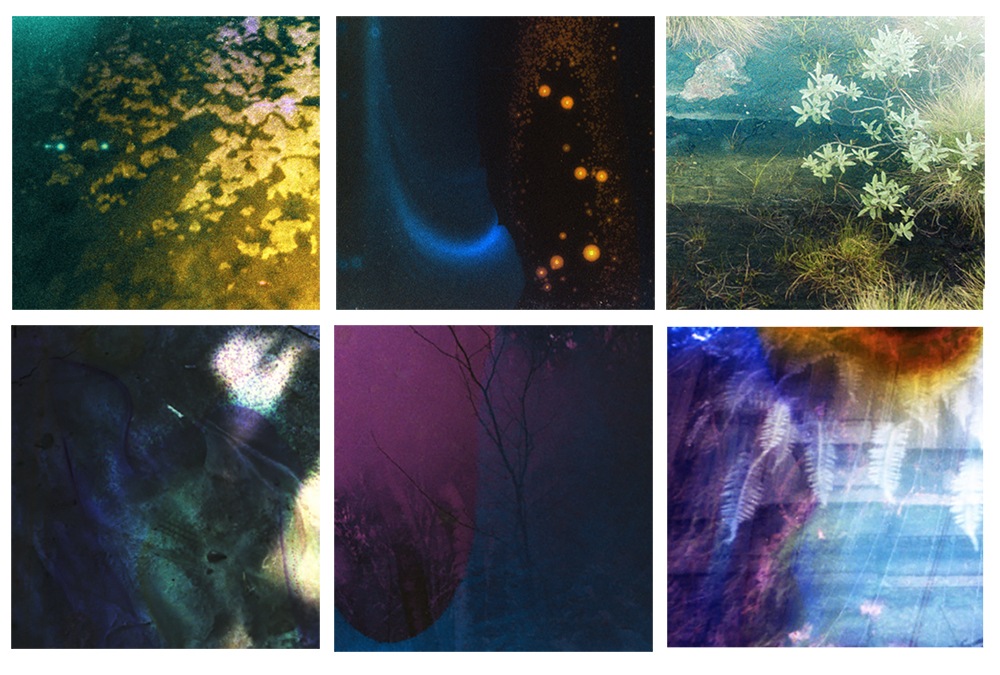 A sneak peek of Polina’s latest work ‘Bloom’
A sneak peek of Polina’s latest work ‘Bloom’
Sweet Slumber


